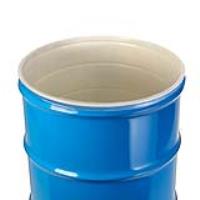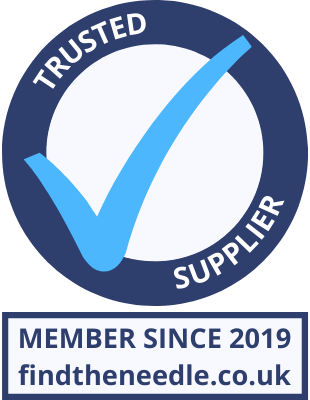 Add My Company
Add My Company
Sign In
Are empty oil drums hazardous waste?
18-11-2020

Plastic drums and steel drums are commonly used to store and transport a wide variety of oils. But what happens to your empty oil drums when they are no longer needed for this task?
Unfortunately, you can’t simply dispose of empty oil drums through standard channels. Depending on the type of oil that’s been stored inside, empty oil drums can be classified as hazardous waste if there is the potential for any harm to be done to human health.
To clear up the facts surrounding this topic, we asked our experts at ITP Packaging to explain when empty oil drums count as hazardous waste and how they should then be disposed of.
WHEN ARE EMPTY OIL DRUMS CLASSIFIED AS HAZARDOUS WASTE?
Industrial storage containers, such as plastic drums and steel drums, are classified as hazardous waste if they have been used to store any substances that are also classified as hazardous.
Hazardous substances can contaminate plastic and steel, leaving behind lingering and potentially dangerous residues that must be disposed of safely. Many different types of oil are classified as hazardous; if these have been stored inside a drum, then the empty oil drum also becomes hazardous waste.
Examples of hazardous oils include the following:
Car oils (engine oil, brake fluid etc.)
Industrial lubricants
Fuel oil
Solvents and chemicals
Some oils, such as cooking oils, aren’t classed as hazardous because they are safe for human consumption. For this reason, it’s always good practice to check if your product is classed as hazardous.
HOW DO YOU SAFELY DISPOSE OF EMPTY OIL DRUMS?
If empty oil drums have been used to store non-hazardous waste, then you can dispose of them as you would any other waste. If no hazardous substances have been held in the drums, simply take the drum to your local landfill site or, better yet, take it to be repurposed and recycled.
If you have stored hazardous substances such as car oils or fuel oils inside the empty oil drums, then they need to be disposed of in a health and safety compliant matter. Unless your company is registered and capable of disposing of hazardous waste on-site, you’ll need to arrange for the empty drums to be collected by hazardous waste disposal experts. Often your local landfill is able to provide this service, so check there first.
HOW TO STAY COMPLIANT WITH GOVERNMENT RULES AND REGULATIONS?
For health and safety, it’s incredibly important that your business stays compliant with stringent government rules and regulations. After all, those rules are there to protect the health of yourself, your employees, and anyone else who could come into contact with hazardous waste.
It’s the duty of the business owner to ensure that hazardous waste is handled correctly and safely. This is known as ‘duty of care’, placing the responsibility for disposal in a safe manner onto whoever produced the hazardous waste.
Business owners that produce hazardous waste must carry out detailed health and safety risk assessments, outlining the dangers posed at the workplace by hazardous waste. Employers must provide safety equipment and training to anyone involved in disposing of hazardous waste (and that includes empty oil drums).
Hazardous waste must be correctly identified and labelled, and it must be stored correctly if it’s not immediately disposed of or transported off-site by a registered disposal company.
WHAT ARE THE CONSEQUENCES OF NON-COMPLIANCE?
Failure to comply with health and safety regulations or to dispose of hazardous waste correctly can have severe consequences.
Hazardous waste has the potential to cause lasting illness or even death if handled incorrectly, so it’s important for empty oil drums to be carefully disposed of. In addition to the potential human cost of non-compliance, business owners can expect to face hefty fines or even prison terms if they are found not to be following health and safety legislation.
CONTACT ITP PACKAGING TO LEARN MORE ABOUT OIL DRUMS
ITP Packaging stocks a comprehensive range of industrial containers, and much of our industrial packaging is suitable for storing oils and other liquids, fuels, and lubricants. We stock plastic barrels, steel drums, and many more items that could be suitable for your business needs.
Our expert team is happy to provide you with further information and to advise you on what to do with empty oil drums once you no longer need them. Contact ITP Packaging today to find out more.
For more information on Are empty oil drums hazardous waste? talk to ITP Packaging Ltd
Enquire Now
List your company on FindTheNeedle.

